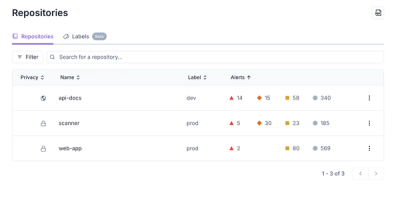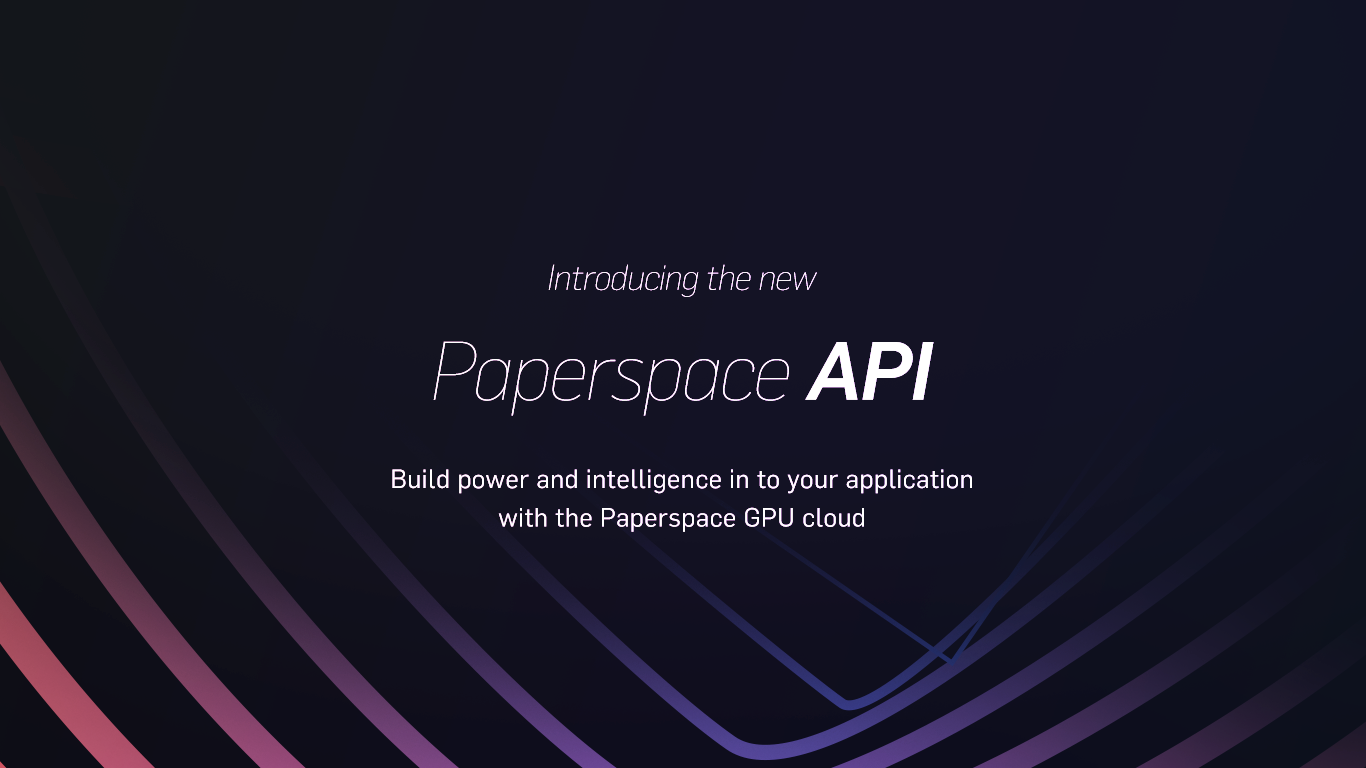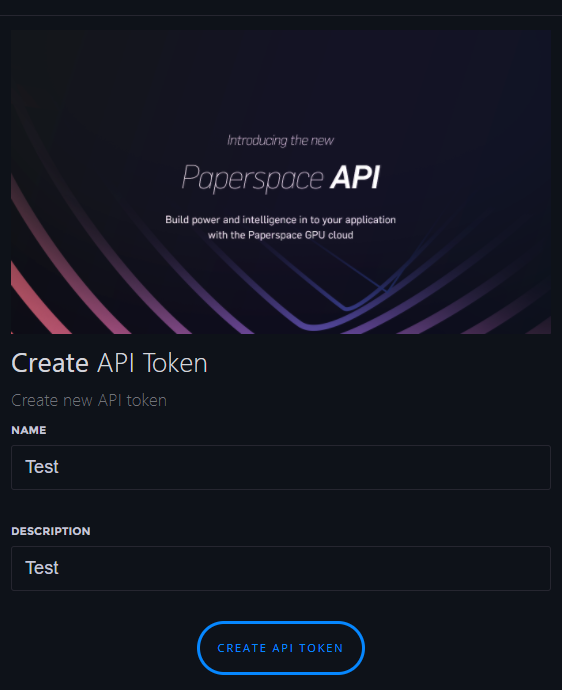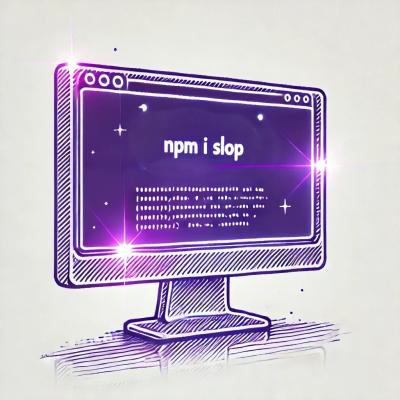
Product
Redesigned Repositories Page: A Faster Way to Prioritize Security Risk
Our redesigned Repositories page adds alert severity, filtering, and tabs for faster triage and clearer insights across all your projects.
paperspace-node
Advanced tools

Heads up! This project is under construction! We welcome your bug reports and suggestions via GitHub Issues!
The Paperspace API is the official devkit for automating your Paperspace account. It is currently available in JavaScript and Python, and we plan to offer other languages and integrations in the future. Currently we are offering basic actions such as creating Paperspace machines and Gradient jobs. This repository includes:
Head over to the releases section to download the latest version of the paperspace CLI for Linux, Mac, and Windows.
After downloading, make sure the 'paperspace' binary is permitted to run on your system by marking its permissions appropriately. Also, add the directory containing the 'paperspace' binary to your path using a method appropriate for your platform.
For this option you will need Node.js v8.12.0 or later. Check your Node.js version by running node -v. Node.js comes bundled with npm, the Node.js package management tool, which you'll use to install this package. Install the package using the -g option as follows:
$ npm install -g paperspace-node
We recommend installing the paperspace-node package globally so that the paperspace command will be available on your command line everywhere on your system. If you want to make it available only within an individual Node.js project, you can install it for use only in the current directory by omitting the -g flag.
Before you can use this tool, you'll need a Paperspace account. You'll use this account to obtain a Paperspace API key.
After creating your Paperspace account check your email to confirm your account before logging in.
Once you have created a Paperspace Account you will need to obtain a API key.
Your API key allows you to access the Paperspace APIs and Gradient features from the command line, or from within apps that you develop. Each API key has an API Token name associated with it.
There is currently only one way to create an API key: from within the API section of your Paperspace console.
You can create an API key from within your Paperspace console under the API section. Login to your Paperspace console, scroll to the API section in the left navigation bar, and click CREATE AN API KEY. Follow the instructions there.
You will need to pick and API token name for your API key, and also provide a description. You can copy actual the API key value associated with the API token name only at the time of initial creation. If you need to access your API key in the future, you can instead access it by API token name using the 'paperspace login' command.

You'll use the API keys generate here to authenticate your requests.
You can interact with Paperspace's API in three ways: from the command line using the Paperspace CLI, programatically (from within a Javascript Nodejs application), or by using an HTTP client of your choice and the Paperspace API HTTP enpoints documented here.
For authenticated requests, the Paperspace CLI and Paperspace-Node module will look in three places for an api key:
Locally in the file ~/.paperspace/config.json, which can be created via the Paperspace CLI by executing:
$ paperspace login
See the previous section on Obtaining an API key for more information.
An environment variable: PAPERSPACE_API_KEY. Example:
$ export PAPERSPACE_API_KEY=1ba4f98e7c0... $ paperspace machines show --machineId "ps123abc"
A command argument: --apiKey. Example:
$ paperspace machines show --apiKey "1ba4f98e7c0..." --machineId "ps123abc"
Assuming you've installed the paperspace-node package or downloaded one of the pre-built executables, you can invoke the Paperspace CLI with:
$ paperspace --help
You can check the version of the Paperspace CLI with:
$ paperspace --version
The CLI provides all methods as subcommands, using this scheme: paperspace <namespace> <subcommand>. For example:
$ paperspace machines create --apiKey "1ba4f98e7c0..." --machineName "My Machine" --size 50 ...
For information on all the methods available, see the API documentation.
You can use the Paperspace APIs programmatically by creating a Javascript Nodejs application and importing the Paperspace-Node module.
We'll be illustrating all examples using ES5 syntax and the CommonJS module format. For other systems like Asynchronous Module Definition, consider using a bundler such as Browserify.
First install the paperspace-node package in your project directory using:
$ npm install paperspace-node
Within your node.js app you can import the package with:
var paperspace_node = require('paperspace-node');
Then create an instance of the client, optionally passing in your API key:
var paperspace = paperspace_node({
apiKey: '1ba4f98e7c0...' // <- paste your api key here
});
-or-
var paperspace = paperspace_node();
If you do not pass an apiKey parameter when creating the paperspace object the paperspace-node module will look for the environment variable value namedPAPERSPACE_API_KEY for an API key, or in the cached api key location created by the paperspace login command, ~/.paperspace/config.json. See the Authentication section above for more information.
You can get the paperspace-node version programmatically via the VERSION attribute:
var version = paperspace_node.VERSION;
All of the methods are namespaced by category ("machines.create" or "invoices.show") and have the same function signature. For example:
paperspace.machines.create({
// parameters
}, function (err, res) {
// callback
});
That is, the first argument is parameters object, and the second is a error-first callback function.
For information on all the methods available, see the API documentation.
If you'd prefer to build your own client instead of using the Paperspace-Node library, you can use the Paperspace API HTTP endpoints directly, as described in the API documentation.
NOTE: the HTTP endpoints are subject to change in the future. We recommend using one of the programmatic APIs whenever possible to maintain forward compatibility.
If making HTTP requests directly to the Paperspace API endpoints use the following address for each request: https://api.paperspace.io
In order to use the HTTP API directly you must specify the x-api-key header with the value of your API key.
If you've created an API client in a language other than JavaScript, please let us know at support@paperspace.com and we will link to it here.
See the directory samples for a few simple samples of using the node API, and the CLI in a bash script. Note: the jq tool is used in the bash sample for parsing JSON data.
We welcome contributions to this project. Please adhere to the established coding conventions within the project and submit changes using pull requests.
Additional information for developers is here: developers.md
For bugs with the API client, command-line utility, or the HTTP API, please file tickets using GitHub Issues on this repo. We'll do our best to respond as quickly as we can. Keep in mind that Paperspace is a small team and you may need to allow up to a week for a response.
Other issues, such as those related to your Paperspace account, your team or team members, billing, or technical issues with your Paperspace machines should be directed to support@paperspace.com.
Think you've discovered a security flaw or exploit? Please contact us directly at support@paperspace.com and we will respond as quickly as we can.
Use the Paperspace API with care. This tool is provided as-is (please see our LICENSE). Know that many actions provided via our public API can result in billing charges for Paperspace services. Please be aware of Paperspace's billing policies before performing any of these actions; you'll see charges reflected in your invoice at the end of the month. Some actions, such as deactivating machines, are irreversible, resulting in permanent loss of data. Paperspace cannot recover lost data such as mistakenly deleted account information, and may only be able to give limited assistance if an action is performed mistakenly. API access will be disabled for accounts not in good standing. Keeping your account credentials secret is your responsibility. You may only use Paperspace's API to store, retrieve, query, serve, and execute content that is owned, licensed or lawfully obtained by you.
This project is open source, under the ISC license. See LICENSE.txt.
Copyright 2018 Paperspace Co. - All Rights Reserved
FAQs
Paperspace API for node
The npm package paperspace-node receives a total of 53 weekly downloads. As such, paperspace-node popularity was classified as not popular.
We found that paperspace-node demonstrated a not healthy version release cadence and project activity because the last version was released a year ago. It has 5 open source maintainers collaborating on the project.
Did you know?

Socket for GitHub automatically highlights issues in each pull request and monitors the health of all your open source dependencies. Discover the contents of your packages and block harmful activity before you install or update your dependencies.

Product
Our redesigned Repositories page adds alert severity, filtering, and tabs for faster triage and clearer insights across all your projects.

Security News
Slopsquatting is a new supply chain threat where AI-assisted code generators recommend hallucinated packages that attackers register and weaponize.

Security News
Multiple deserialization flaws in PyTorch Lightning could allow remote code execution when loading untrusted model files, affecting versions up to 2.4.0.